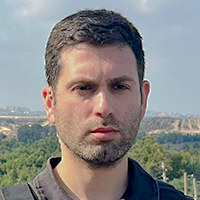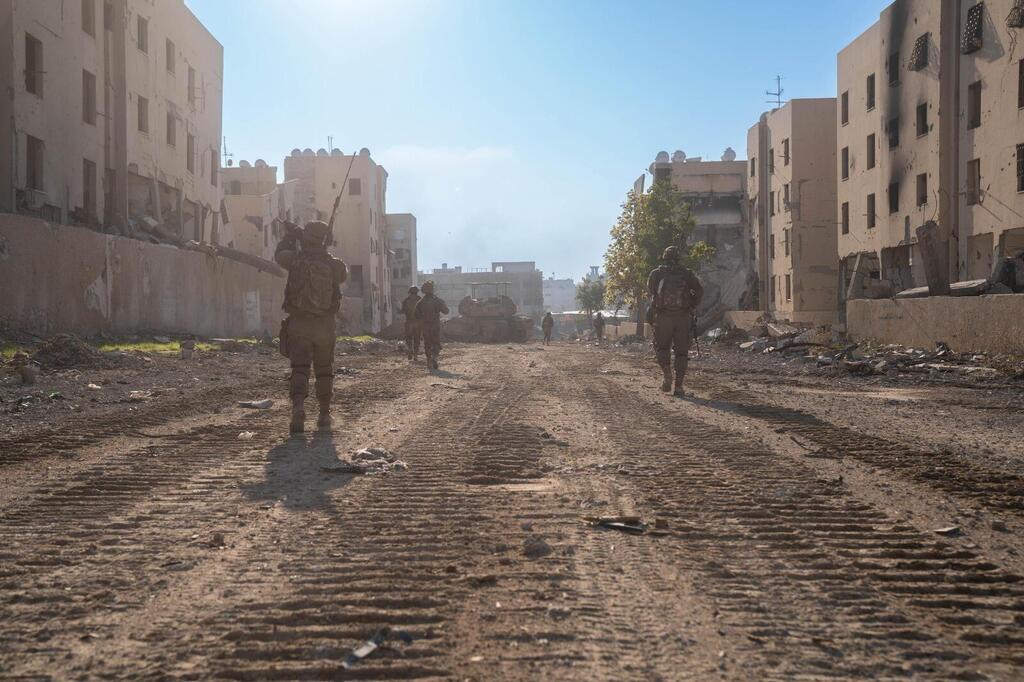Getting your Trinity Audio player ready...
In a significant directive issued Wednesday by IDF Chief of Staff Lt. Gen. Herzi Halevi, the Israeli military will now conceal the identities of all soldiers and officers involved in operational combat activities. The move comes in response to increased efforts by anti-Israel activists to target IDF personnel abroad.
The policy, effective immediately, applies to all personnel from the rank of brigadier general and below. It affects thousands of active-duty and reserve soldiers, including battalion, company and brigade commanders from standard units—not just elite forces—who frequently gave public interviews in the aftermath of the October 7 Hamas attack.
While existing images and footage of these individuals will not be retroactively altered, all future appearances will adhere to the new guidelines.
The IDF’s International Law Division will personally brief soldiers and officers before any interviews, and combat zone images featuring personnel will require special authorization before publication. The measure ensures that the identity of infantry soldiers will be protected as an Air Force pilot or a commander in the naval or commando units.
Increased risks abroad
The decision follows rising threats against IDF personnel traveling abroad, including from organizations like the Hind Rajab Foundation, reportedly operated by Lebanon-based pro-terror activists in Belgium. Recent complaints filed by the foundation led to a Brazilian judge ordering an investigation into an IDF soldier vacationing in the country, prompting the soldier to flee.
Concerns over such incidents have grown since reports surfaced last month of soldiers being warned against travel due to the risk of arrest or interrogation. Some IDF personnel had to leave foreign countries abruptly, while others were advised against traveling altogether.
The International Criminal Court’s (ICC) decision to issue arrest warrants for Israeli leaders, including Prime Minister Benjamin Netanyahu and former defense minister Yoav Gallant, has intensified fears of international legal actions against IDF officers and soldiers.
Get the Ynetnews app on your smartphone: Google Play: https://bit.ly/4eJ37pE | Apple App Store: https://bit.ly/3ZL7iNv
The IDF has long urged personnel who served in Gaza to avoid posting images or videos from the war, which could be used as evidence in war crimes investigations. Despite these warnings, many soldiers violated military orders, leading to the creation of “blacklists” by pro-Palestinian organizations in Europe and elsewhere. These lists are compiled using social media content and other publicly available materials.
To mitigate these risks, the IDF now evaluates travel requests on a case-by-case basis, particularly for those who served in Gaza. While soldiers are not explicitly banned from traveling abroad, the military assesses the risks for each applicant, focusing on commanders and combatants involved in Gaza operations.
The new policy reflects the IDF’s growing concern over the potential misuse of images and information against its personnel in international legal proceedings. With pro-Palestinian groups operating a vast network across Europe and other regions, the military aims to shield its soldiers from legal and personal risks.






